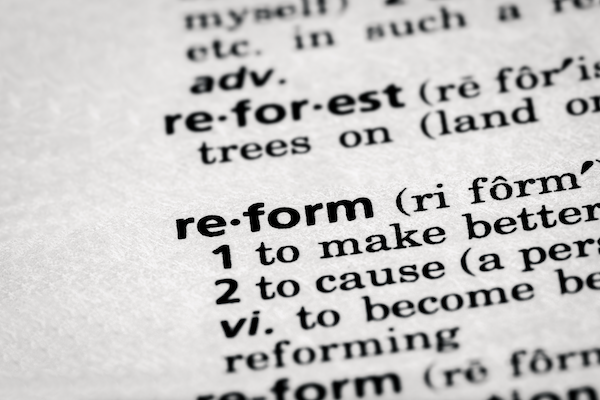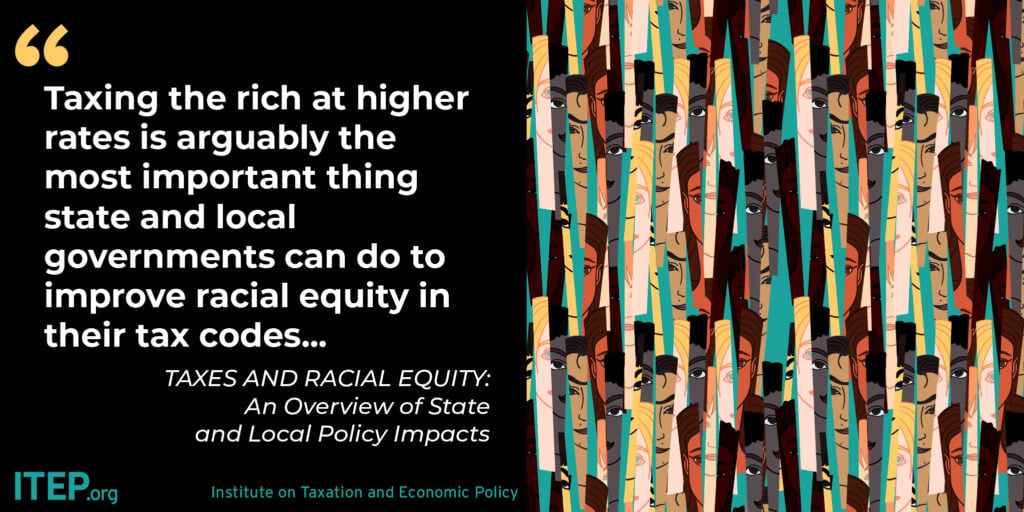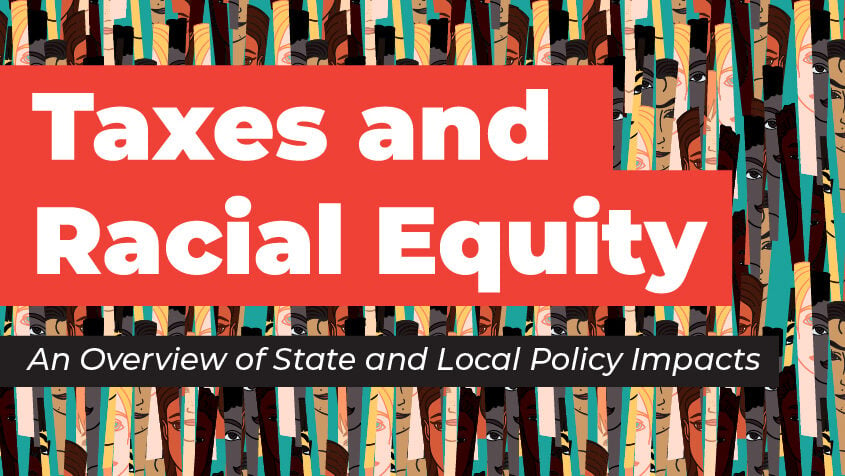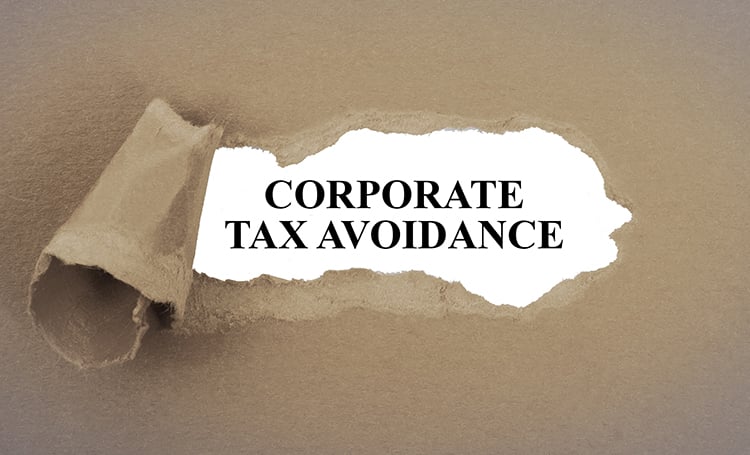
ITEP's Research Priorities
The New York Times: Biden Tax Plan Challenges G.O.P. Formula for Economic Growth
March 31, 2021
The Institute on Taxation and Economic Policy, which has long criticized American businesses for managing to avoid paying what they owe, conducted a study of Fortune 500 companies that were profitable and that provided enough information to calculate effective tax rates. The institute found that those companies on average paid 11.3 percent on their 2018 […]
Foreign Policy: To Build Bridges, Biden Plans to Hike Taxes
March 31, 2021
A 2019 study by the Institute on Taxation and Economic Policy found that at least 60 of the largest publicly held U.S. corporations paid no federal income taxes in 2018. The companies included household names like Amazon, Chevron, Netflix, and General Motors. Read more
US News: Biden Wants Corporate America to Pick Up the Tab On His Infrastructure Plan
March 31, 2021
Moreover, a study by the Institute on Taxation and Economic Policy of the effects of the 2017 tax cuts found that 379 companies with combined profits of nearly $766 billion paid effective corporate tax rates on average of 11.3%. Some 91 companies, including household names like Delta Airlines, FedEx, Amazon and Eli Lilly, paid no […]
Washington Post: Power Up: Unions, liberal groups urge Biden to go even bigger on tax hikes for infrastructure plan
March 31, 2021
Some tax experts, however, estimate that the benefits of restoring the deduction would go to the richest Americans: “House Democrats included a provision suspending the cap for 2020 as part of a COVID relief package last year. [The Institute on Taxation and Economic Policy] estimated that this would cost more than $90 billion in a […]
President Biden’s Infrastructure Plan Moves Toward Ending “Zero-Tax” Profitable Corporations
March 31, 2021 • By Matthew Gardner

Following is a statement by Matthew Gardner, a senior fellow at the Institute on Taxation and Economic Policy, regarding the corporate tax provisions in the “American Jobs Plan,” released by the White House on March 31. “For years, our corporate tax has been broken, allowing profitable corporations to altogether avoid taxes or pay far below […]
West Virginia Center on Budget and Policy: Senate Income Tax Cut Plan is More of the Same: Tax Cuts for the Wealthy, Tax Increases and Budget Cuts for Everyone Else
March 31, 2021
This week, the Senate Finance Committee took up HB 3300, the House’s income tax cut plan, and made significant changes before quickly passing it out of committee. Unlike the House plan, which phased out the income tax over time with no revenue offsets, the Senate’s plan is more similar to the governor’s proposal, making a […]
A New Look at Taxes and Race at the State and Local Levels
March 31, 2021 • By Carl Davis, ITEP Staff, Meg Wiehe

A new ITEP report reveals how different taxes have very different impacts on racial equity and unveils data for two states showcasing the consequences of their contrasting tax policy choices. In short, we find that income taxes can help narrow the racial income and wealth divides while sales taxes generally make those divides worse.
Taxes and Racial Equity: An Overview of State and Local Policy Impacts
March 31, 2021 • By ITEP Staff

Historic and current injustices, both in public policy and in broader society, have resulted in vast disparities in income and wealth across race and ethnicity. Employment discrimination has denied good job opportunities to people of color. An uneven system of public education funding advantages wealthier white people and produces unequal educational outcomes. Racist policies such as redlining and discrimination in lending practices have denied countless Black families the opportunity to become homeowners or business owners, creating extraordinary differences in intergenerational wealth. These inequities have long-lasting effects that compound over time.
New Research: Tax Policy Choices Can Narrow or Worsen the Racial Income Gap
March 31, 2021 • By ITEP Staff
Media contact A new report released today by the Institute on Taxation and Economic Policy spotlights a stark challenge confronting state and local lawmakers. Tax policy has the potential to narrow the racial income and wealth gaps, but an overreliance on inequitable revenue sources in some states indefensibly makes those gaps worse. The research builds […]
The Street: Cannabis Stocks Rise as New York Moves Closer to Legalization
March 30, 2021
New York would be the 16th state, plus the District of Columbia, to fully legalize marijuana after decades of imprisoning people who participated in the cannabis black market. About one in three Americans live in a state with legal sales of recreational cannabis, according to the Institute on Taxation and Economic Policy. Read more
California Budget & Policy Center: American Rescue Plan Provides Assistance to Millions of Californians
March 30, 2021
This latest round of federal fiscal relief will help reduce hardship as a result of the pandemic, particularly for Californians with low incomes and people of color, and begins to set the stage for a more equitable economic recovery. This report outlines key provisions of the plan and what it means for Californians. Read more
Daily Wire: Zoom Profits in 2020: $660 Million. Zoom Tax Payment In 2021: $0
March 29, 2021
Zoom hauled in some $660 million in pre-tax profits in 2020, compared to $16 million in profits in 2019, according to the Institute on Taxation and Economic Policy. “Corporations that pay their executives in stock often benefit from a provision in the federal tax code that lets them write off expenses that appear far larger […]
WTTW: Proposals Could Expand Eligibility for Earned Income Tax Credit
March 29, 2021
“[Illinois] just piggybacks off of that by saying if you got the federal credit you get 18% of that for state purposes,” said Lisa Christensen Gee, the director of special initiatives at the Institute of Taxation and Economic Policy. The credit offsets state income tax liability, and if an individual has more credit than the […]
Washington Post: Fact-checking President Biden’s first news conference
March 26, 2021
Biden loves this statistic, but he usually is careful to say “federal taxes.” Simply saying “taxes” makes it wrong, because no matter what the federal tax liability, these companies certainly pay a variety of payroll, real estate and local or state taxes. In a 2019 report, the left-leaning Institute on Taxation and Economic Policy (ITEP) […]
Jackson (Miss.) Clarion-Ledger: Eliminating state income tax would hurt Mississippi working families, widen inequities
March 25, 2021
This is because individual income taxes are the only major tax in which the state’s highest-income earners pay a larger percentage of their income in taxes than the state’s lower-income earners. Not surprisingly, then, the state’s wealthiest households stand to gain the most from eliminating the tax. On average, Mississippians in the lowest 20% of […]

The Biden administration has made clear that its top priorities include a major recovery package with critical investments to boost the nation’s economy and tax increases for corporations and the wealthy. Adequately funding the IRS must be part of that agenda. It seems every week, a new study, data set or research-driven commentary reveals how […]
Looking at the Tax Code Through A Race Equity Lens Presents a Strong Case for Reforms
March 25, 2021 • By Carl Davis

An important new book from Professor Dorothy Brown at Emory University offers a timely look at the federal tax code through the lens of racial equity. The Whiteness of Wealth: How the Tax System Impoverishes Black Americans—And How Can We Fix It uses a mix of data, legal scholarship, interviews, and personal stories to tear […]

We all need the things that the public sector provides. When corporate taxes go unpaid, the American people have less for the things that would help our communities. That means less repair of our failing infrastructure, less investment in greening our economy, less funding to help young people attend college.
Testimony to Senate Budget Committee on Ending a Rigged Tax Code: The Need To Make the Wealthiest People and Largest Corporations Pay their Fair Share of Taxes
March 25, 2021 • By Amy Hanauer
Following is testimony of ITEP Executive Director Amy Hanauer before the Senate Budget Committee to consider “Ending a Rigged Tax Code: The Need To Make the Wealthiest People and Largest Corporations Pay their Fair Share of Taxes” “Chairman Sanders and Ranking Member Graham, thank you for the opportunity to speak to this committee. My name […]
Indy Week: Anti-Poverty Advocates Rejoice Over New Child Tax Credit
March 24, 2021
It’s hard to overstate the significance of the expanded tax credit for low-income families. Information released by the Institute on Taxation and Economic Policy found that more than 2.6 million children in North Carolina stand to benefit from the credit, and the Center on Budget and Policy has calculated that the legislation will move 137,000 […]
Connecticut Post: State Rep. Sean Scanlon (opinion): State child tax credit would ease burden on families
March 24, 2021
The good news for families is that President Biden’s recently passed stimulus bill features a provision long championed by my Congresswoman Rosa DeLauro that not only makes the tax credit fully refundable but also expands the credit from $2,000 to $3,000 for children 6 to 17 and to $3,600 per child under the age of […]
CBS News: Zoom’s pandemic profits exceeded $670 million. Its federal tax payment? Zilch
March 24, 2021
“We are only taxing about half of all corporate profits,” observed Matt Gardner, a senior fellow at the Institute on Taxation and Economic Policy, which put out a report on Monday highlighting Zoom’s likely $0 federal tax bill for 2020. … “There is nothing exceptional or illegal in what Zoom is doing here,” said Gardner, […]
The Street: New York Inches Closer to Legalizing Recreational Cannabis
March 24, 2021
Last November, voters in New Jersey and Arizona voted to legalize marijuana. And in December, New Jersey placed a social equity excise tax on cannabis sales in order to address the disparate effect of anti-marijuana laws on communities of color. About one in three Americans live in a state with legal sales of recreational cannabis, […]

It was a relatively quiet week in state fiscal policy, likely partly due to states waiting for federal guidance on some of the details in the American Rescue Plan. As they await those details, lawmakers in Mississippi and West Virginia continue to wrangle over whether to recklessly eliminate their income taxes, while leaders in states including Connecticut and New York considered more productive and progressive reforms. And in the meantime, groundbreaking work on the intersection of race and tax policy is now available.
Arkansas Times: Can’t Forget the Millionaires: Income Tax Cut on Agenda Today
March 23, 2021
Arkansas Advocates for Children and Families has run the numbers by the Institute on Taxation and Economic Policy. It says 72 percent of the tax cut will go to people making more than $192,000 a year. The tax cut would take effect in 2022. When fully implemented, it would cut revenue by $27.4 million a […]
